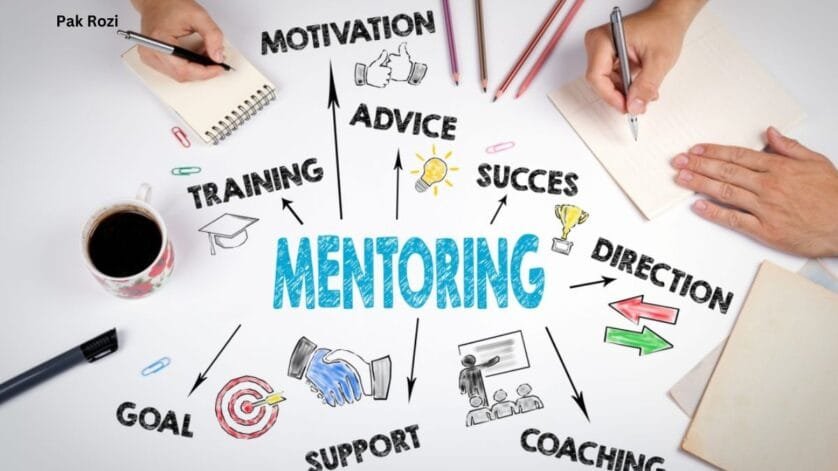It is a profound relationship that helps people grow in their profession and as persons. Seeking or providing Mentoring, it gives insight, experience, and support. Here’s an exploration of how to find a mentor versus being a mentor, which will focus on unique challenges, benefits, and strategies in each role.
Table of Contents
What does a mentor do in regard to knowledge?
A mentor is a facilitator, advisor, as well as a role model who shares his or her knowledge and experience in order to be able to help others get through the challenges and chances that await them.
Why Find a Mentor
A mentor can improve the growth of a career. This is through the facilitation of skills and development of confidence through someone expert in the field.
- A mentor avails all the networks which one could use in development in his or her career.
- A mentor gives feedback, and this is constructive. That is, feedback will lead to continuous improvement.
How to Find a Suitable Mentor
Finding the right mentor involves understanding one’s needs and researching potential mentors whom you reach out to them professionally. Look for experts who share your career aspiration or even go beyond it.
Seek them professionally, that is, give them a message stating the reason for writing or sending the message is the strong interest in acquiring mentorship from them.
Challenges in Finding a Mentor
Though the process of getting a mentor has its advantages, there are challenges involved. For instance, a good mentor is hard to come by, and rapport takes time.
- A mentor who has time as well as interest is challenging to find.
- Balancing personal goals with the mentor’s availability is essential in an effective relationship.
Advantages of a mentor
Being a mentor is rewarding; it’s more about giving back and sharpening your own skills in leadership while building meaningful relationships.
- This process has built up your knowledge and skills in teaching others.
- Success by the other person will make you feel good both personally and professionally.
Qualities of an Effective Mentor
A good mentor, therefore is someone who actively listens and provides thoughtful reflective feedback. He is open-minded and patient and committed to the development of the mentee.
- Honest and supportive, the mentor earns the trust of his protege.
Difficulties to being a Mentor
Being a mentor is one of the great responsibilities that involves time and patience for developing your mentee.
- A mentorship can be conflicting with other professional responsibilities
- There should be boundaries in counseling so that a mentor and his mentee would not lose that relationship.
A Good Mentoring Relationship
An open and respectful mentorship relationship will provide an excellent foundation for trust, and the guidance will easily flow through. Both need to express their expectations clearly while listening to each other actively with respect for each other’s time and perspective. Therefore, it will be possible to share insights, experience challenges, and receive good feedback.
- Open communication keeps a safe environment to have truthful discussions.
- Mutual respect brings a trustful, fruitful, and long-lasting relationship.
Defining Mentoring: The Dual-Role Relationships
Both mentors and mentees are committed in respect of sharing a structured, guiding relationship, with accompanying common experiences, whereby each develops unique benefits.
- Mentorship is an empowering connection that makes people develop.
- The mentor and the mentee both learn; they grow to acquire and develop new skills and see things from a different level.
Advantages of Having a Mentor at Work
A mentor determines the difference that career advise, insight, and connecting one to the network all make in helping advance his work.
- Mentors give insights and knowledge of the industry that cannot be found anywhere else.
- Mentors give advice that boosts the confidence and decision-making ability of the mentee.
Know Your Needs for Mentoring
Identifying your needs for mentorship is very crucial for selecting the right mentor and making the most of your time with him. Your key goals, challenges, and areas of growth are probably what you want from mentorship. This will help you be crystal clear in narrating your expectations from the mentorship and ensure that you and your mentor are marching towards meaningful objectives together.
- Select your specific skills or knowledge that you would gain from the mentorship.
- Consider your own and professional aims in considering the mentor that you have.
Conclusion
Mentoring whether as a mentee or a mentor, really has the potential to change life. For mentees, it is the way of navigating complex career paths and challenges. For mentors, it is the means to give back and to develop their leadership skills. So both roles enrich professional lives with a mutually beneficial relationship wherein knowledge, experience, and support are shared. With mentorship indeed, one can transform his or her journey into something worthwhile through priceless experiences and skills acquired.
FAQ’s
What does it mean to find a mentor?
This means finding somebody who has an experience which will guide, support, and advise you in either your personal or professional development.
Why Seek a Mentor?
A mentor is important because they give you insight, help you avoid mistakes, build your confidence, and accelerate the progress you achieve through their experience and support.
